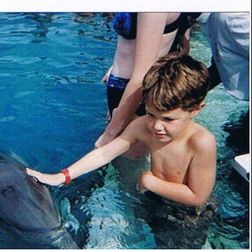 My son and his girlfriend have been living in a small one-bedroom apartment with their cat for the past year. I basically kicked them out of our house when my daughter announced her pregnancy, since living space is the one asset we have that could help our grandson get off to a good start in life. Bill and Simone have been struggling and making do, and hopefully they're learning more of what it takes to make it in this not-user-friendly society we've created. It's Bill's birthday today, and I just saw him briefly. They have new roommates, he says. A couple with a dog and a cat. A pregnant cat, it turned out, so now also seven kittens. I assume the newcomers are settled in the living room, since the bedroom is occupied and the kitchen is tiny. He sounds good about all this, though. There's more help with expenses and always somebody to hang out with, and they all love animals. This is a typical living situation for their generation. Kids born in the 90s just missed the booming economy of the 80s and the affordable college of last century. We lost our nest egg in 2001, when Bill was 11. Overcrowded schools, an ADD diagnosis, a propensity toward anxiety, and a gentle spirit don't provide much support for a young teen. Three college attempts resulted in quite a few non-transferable units and a good chunk of student loan debt. Jobs? Yeah, good luck with that. Even those with master's degrees are working in call centers and driving buses. It's not just this particular decade. Baby boomers who were patriotic enough to serve in the military are now experiencing poverty and over-extended veteran's programs. We take leftover donuts to them and just that small kindness makes their day. Veterans commit suicide at nearly 40 times the rate that soldiers die in combat. It's estimated that at least half of the homeless people in America are veterans, mostly over 60 years old. Happy birthday, Bill. Here's the bright future we promised you. We hope you enjoy the used clothes, hand-me-down car, and cheap food. In a country that was built on cooperation, community, opportunity, and vision, we haven't done much to protect and maintain those values. Watch your backs, retirees. There's a spirit of revolution brewing.
0 Comments
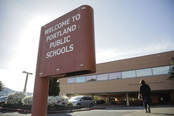 I spent a very informative hour with some extremely hard-working people at Portland Public School District's offices. I initiated contact with them at the request of a group of parents who are working to reduce waste and improve recycling programs in schools throughout Oregon. Did you know that nutrition services is not part of the school district? It's a contracted program. This is a good thing, because it allows the district to demand outstanding service from the provider, rather than having to stretch district resources ever farther to provide nutrition as well as all the other needs our kids have. The single biggest thing we can do to improve our children's education (besides reading with them) is to vote for them. We don't only vote with our election ballots, although those are important. We vote with how we spend our money and how we use our time. Every parent who can should be volunteering in their child's school on a regular basis. Those who can't because they work should be contributing a few of those earned dollars. Teachers need all the parents to check in, ask what they can do or provide. Parent/teacher clubs are often pitiful little groups that try to run a cookie sale to pay for field trip buses. They used to be the hub of the community! Everyone should be involved, should know what programs are struggling and where to lend a hand. These institutions were never meant to be a gift to the public. They're only gathering places. What makes a school successful is the commitment it receives from the community. We need to stop, as a society, criticizing our institutions while contributing nothing to them. Oregon citizens hate tax increases, and you can tell from the state of our infrastructure. Families think the schools are there to provide everything their children need, from education to meals, from challenging their minds to providing daycare. It's OUR responsibility, parents, to educate our kids. The schools are there to provide structure and guidelines, to introduce material and nudge kids along, but it's up to families to inspire them, to share their dreams, to walk alongside them as they learn and grow and think and imagine. Thank you to those who have supported my efforts to reduce food waste in Portland Public Schools. I'll continue to work with them and help every way I can. But let's not stop there. Let's provide what the schools, and our kids, really need. Let's invest ourselves in the schools. Imagine what we can create together! PS: An important department of PPS is the sustainability team, officially called Resource Conservation, a division of Facilities & Asset Management. The "team" is one staff person, Nancy Bond, and one Americorps intern. And Nancy will be retiring at the end of this year. If you really feel there's waste in Portland schools, I suggest you check in with Nancy and ask how YOU can help. If we want sustainability in our schools, we're going to have to fund it, build it, and support it.
Thank you, Nancy, for your hard work over the years. Your commitment to getting the most for our kids out of limited resources is vastly under-acknowledged. I look forward to learning from you in this final semester of your career. 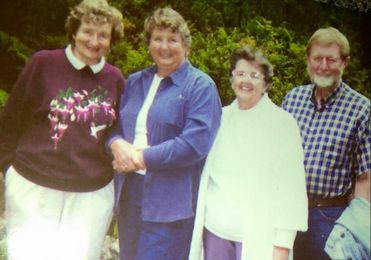 I grew up with privilege. Even before our current societal awareness of white privilege, I knew I had significant and rare advantages. Not money or great schools or opportunities. I had family. My mom's siblings have always been a tight-knit, supportive group, including all their spouses. Even after my dad died, my mom reconnected with a friend from childhood, who had been part of the social crowd when they were all teens. Well, mostly teens. Mom remembers being the left-out little kid when her all-older siblings, along with my stepdad and his brothers, were dating and entering college and starting their adult lives in the late 1940s. Through the years they all stayed connected. I have wonderful memories of holidays with my cousins, while Mom's brothers and sisters hosted the Morehouse clan. When Mom married into the Pierce family, a whole second chapter of close siblings and all their kids were added to the mix. My mom & dad's "immediate" family exceeded fifty people. Dad is six years older than Mom, and Mom's eldest sibling is nine years older. Their support and wisdom saved her many times in her young years. But Mom is in her 80s now. Dad had a heart monitor put in the other day. Mom's two middle siblings, Hap and Shirley, both died in the last year. Eldest sister Margie is in the hospital, as is Shirley's widower, Kirk. This is a hard time for my mom. These people shaped us into who we are. Each of them is a part of me, and I'm so much better, wiser, stronger, and more capable because of their influence. I can't imagine how much more they are a part of my mom, but I know they are in her mind and heart and spirit. She's generous because they gave to her. She's kind because they cared. She's wise because they taught, and brave because they shared their courage. Every day, I meet people who are alone because their family all died, or left, or gave up on them, and I am reminded how privileged I am. Even as my mom's heart breaks while her generation's lives reach their end, none of us are ever alone. We all live in one another, and as I watch my daughter become more like my mother, I am grateful for the family that came before, for the legacy they gave us. Most especially, I'm grateful for my mother, for her commitment to family, for the sacrifices she continues to make without a second thought, because family is her purpose, her strength, her gift. 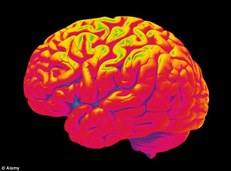 Several articles have come out this year about power causing brain damage (cited below for your convenience). No big surprise there. The more power an individual has, the less he/she needs to empathize with others, the less he/she has to understand or care, the less he/she is motivated to take on helping anybody else. In a very broad, general sense, of course. Most super-wealthy people give generously to charity. So power, in and of itself, broadens the divide between the rich and the poor, and contributes to the decline of our middle class. But I don't think power, or even wealthy people, can be blamed for our failing democracy. As we watch the power of the people wane and see a modern feudal system developing, in which giant business interests can pay below-poverty wages, We The People have to take some responsibility. The blanket statement that money is power is treason in a democracy. It's giving up. It's allowing oneself to become a victim, thereby increasing the truth of the statement. The power of the people isn't something that comes naturally in this world, and our forefathers worked very hard to create a power-of-the-people society that bucks tradition and history. We want to rise above petty competition and labeling people and classes/castes and slavery and bowing to anyone as if they were better than us. We want to hold our heads high, no matter our income, and speak out for truth and justice. If money is power and power damages the brain, our duty as ordinary citizens is even more important than we realized. The only thing allowing money to corrupt, allowing power to disengage from compassion, is our failure to speak up. Each and every citizen in a democracy has a responsibility to be educated, aware, and to praise the parts that are working, expose the damaging bits, and be willing to carry a share of the weight to make everything work, with or without money. I don't have money, but I have a voice. The United States is on a collision course to failure. Mankind is on a collision course to extinction. We can change these paths, but we can't do it sitting around musing over the mess. We have to take some steps, or make a call, or write a check, or join a team. We have to serve a meal, share a room, complain about excessive packaging. It doesn't really matter what action any one of us takes -- if we all do SOMETHING, we can change the world. www.theatlantic.com/magazine/archive/2017/07/power-causes-brain-damage/528711/ lwww.dailymail.co.uk/sciencetech/article-4617516/Being-position-power-cause-brain-damage.html www.businessinsider.com/does-power-cause-brain-damage-2017-6 theweek.com/speedreads/707019/having-power-hurts-brain  Once Halloween is over with, the candy has been disposed of, the costumes and spiders are all back in their bins in the garage, it becomes the season of anticipation for me. The weather is changing, the clocks are falling back, the evenings are dark, the mornings are damp, and turning the oven on seems like a good idea. We bought apples for a pie. I've started thinking about what small gifts would be most appreciated by the kids -- a rolling pin for Will? some fondant tools for Katie? (My kids love to bake -- big surprise!) This year, there's far more anticipation than usual. My grandson is due in mid-December! Just a few years ago, I was pretty sure neither of my kids would be having children. Will, at 27, still seems dead-set against having a family. But Katie & PJ surprised us all, and I couldn't be more delighted. PJ is head and shoulders above the other young men she dated, and his capacity for parenting is already very visible. Katie turned into a mature, responsible adult practically overnight when she learned she was pregnant. Now we're in the last six weeks of waiting. It's going to be a cold winter. We're wondering if it was wise to go with hard floors instead of carpet, and whether little Carter will have warm enough sleepers. Or whether we'll be able to turn up the thermostat a little and still manage the power bills. PJ is going to take a few weeks off work and be there for Katie, a tremendous blessing for her and a scary choice from the budget point of view. Sometimes it's a little difficult to honor our priorities and not become a slave to money or sell out our family for perceived security. We've always gotten by before, and thanks to supportive family, we will come out of the other end of this winter just fine, with an amazing new member of our family to show for it. These are normal anticipations -- some traditions, some pleasures, some worries, and overall a deep gratitude for the comforts and joys in our lives, homes, and families. It's heartbreaking to know that these aren't the simple wishes of so many people. Katie was just telling me about a friend who is having a baby next week. She and her boyfriend live in their car. She wasn't even aware she was pregnant until six weeks ago. They both smoke, drink, do recreational drugs, and don't have any prospects for their future. In Oregon, it's not OK for kids to be homeless. The system assumes that a foster home with a roof and food security is better than living with parents who can't provide those basics. I wonder if Katie's friend knows this? Probably not -- so many of the young people trying to live off the grid or outside of boring old traditional lifestyles have no idea what the consequences will be. And that's just the people that are choosing non-conformity. So many more families are willing and eager to work, have always fought to provide for their kids, and find themselves unable to accommodate a 50% or more jump in rent all of a sudden. What would you do, if you couldn't come up with an extra $500 a month and were suddenly evicted? Would you have family or friends who would take you in? Would you be able to add another part-time job to your schedule to afford higher rent? Or would you find yourself in an old motor home on someone's unused garden patch, because parking it on public property is illegal? Would you live in the minivan? Make room for the kids to sleep in a make-shift bed while you tried to catch a little rest in the driver's seat? Would you have to wash as best you could in the Burger King restroom with paper towels, and then go off to work as if everything were under control? Would you seek help, or would you hide from authorities in order to keep your children with you? I am so, so grateful that my daughter, her husband, and their baby are going to be here, secure, warm, and fed this winter. That my son and his girlfriend also have family support, choices, and all their needs met. There are no guarantees in this world, and the privileges of family and safety nets, for us, are very deeply appreciated. I hope you and yours feel as much gratitude as I do in this season of anticipation. These are two of the emotions that make life rich and full. 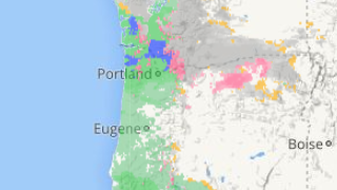 Like it or not, the season has changed. That doesn't just mean that Christmas merchandise is already hitting retail shelves (bah, humbug). It also means the weather has taken a dramatic turn. Rain. Wind. Thunder. Flooding. Power outages. True, we've got it very good compared to Puerto Rico, Florida, and Texas, but it's definitely chilly. Dark in the early evening. The sound of the furnace kicking on in the wee hours. Pulling the crock pot out. Keeping a mug of something warm nearby all day. Halloween costumes under construction. I love this time of year! Who doesn't? The people without shelter, of course. The people who have lost their apartments due to sudden rent hikes, who don't know how to be homeless, who never considered it would happen to them. The working poor. The families that have to choose between gas for their homes or gas for their cars. The elderly and disabled who didn't think to keep a tent or waterproof clothing because they felt safe. Unfortunately, nobody is safe. NPR recently reported that 40% of Americans cannot accommodate a $400 emergency. That means a blown transmission can cost someone their home. That having to stay home with a sick child for a week can result in a lost job, which balloons into homelessness in a matter of days. Nearly half of all children in Oregon are experiencing food insecurity. Now, that doesn't necessarily mean that they're going to bed hungry every night (although many are). It means that families cannot juggle living expenses, and getting help with food helps keep many from crossing the tipping point. Food stamps, emergency food pantries, and free meal programs are critical to a tremendous number of our neighbors. Of course, friends are embarrassed to admit that they can't make ends meet. That somehow their obsolete career or reduced work hours make them failures. We don't know who is huddled under three sweaters because they can't pay the heating bill, or who is trying to keep a positive attitude about the empty pantry being an opportunity to clean the shelves. I didn't realize how worn out and thin my clothes were, but my mom noticed, and she bought me a few new basics. I never would have thought that a long-sleeved shirt and slacks without any holes would be a luxury, but they are. My $800-a-month disability check would have me living in a box if it weren't for family. As we start the seasonal baking and nudge the thermostat up, I hope we stay aware of the half of our city that can't do either of those things. I hope we tuck away a few dollars to donate, or start a box of a-can-a-day foods that we can take to our neighborhood emergency pantry. Many of my friends are making as many sandwiches as they can afford, and then handing them out to the tent camps and new tiny home communities, where people are huddled with minimal resources and just their courage to keep them from despair. Every day, especially in the cold season, it does us well to take a moment for a thought of the other guy. To write down that little idea that might help one neighbor stay warm or eat well. To take a small action, any action, that can snowball into hope for innumerable strangers.  Here in the developed world, you would think that everybody would have access to food, even the very poor. It's true, there are free meal programs, emergency pantries, food stamps, and more. I've heard people say that in Portland, nobody has to go hungry. But they still do. The Oregon Food Bank buys foods in bulk and sells it to various hunger-relief charities. Yes, they sell it. They recently started offering all the fresh produce for free, but everything else comes at a price. So the charities have to be funded, and with limits on funding, they have to set up guidelines regarding who is allowed to receive food, and limits as to how often those recipients can be helped. OFB's free produce is an excellent improvement. Dubbed Free Alliance, the program partners with sellers for more donated fresh food, allowing the food bank to pass it on at no charge, in order to increase nutrition of the food being given to people in need. Because hunger itself really isn't the biggest problem -- it's malnutrition. There's always bread. I've driven downtown and offered leftover bakery items to people on the streets. Sweets are a big hit, as their brief shelf life makes them harder to distribute. But bread, bagels, and rolls are everywhere, and street folks often say thanks but no thanks to more bread, especially hard breads that aggravate already-under-cared-for dental problems. (Why is it that we can provide free medical care, but no dental services?!) Man cannot live by bread alone, the bible tells us. It's literally true, regardless of religious meaning. Nature requires a variety of fruits, vegetables, and protein sources to build healthy bodies, and bread is mostly just extra calories. The calories help, especially for people who don't have access to anything else. But consuming calories isn't the same as being nourished. That free produce that OFB is offering? Yeah, that only goes to partner agencies. If you want food from OFB, you have to be a 501c3, have adequate storage and transportation, submit an application, and attend a class. After all that, they select partner agencies. I went through the process and was declined. This year, they aren't accepting any new partner agencies. So even though there is a lot of food in Portland, there isn't necessarily a lot of nutrition available to the very poor. Even though there are hundreds of volunteers actively working to provide food to everyone in need, we rely on donations, and few people are donating meat, produce, and dairy products. We end up cooking meals that are heavy on rice or pasta, flavored with what little meat we can get, and supplemented with meager vegetable offerings. Nobody has to go hungry in Portland, but malnutrition is a whole different story. 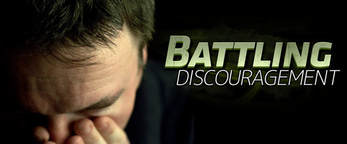 I haven't posted in ages, mostly due to my daughter's wedding, the house remodel, and preparing for my first grand-baby, which has all been joyful. But it's also because it's hard to create meaningful content when the world is discouraging, and anyone who keeps up with news and world affairs and isn't discouraged is living in a fantasy. I cope by hunkering down and working on the small things I can control and impact. Waste Not Food Taxi is poised to become a major force and solution in the greater Portland area, which is both a dream come true and a terrifying prospect. If all three counties' waste management departments, as well as Metro, start referring businesses to us for help with their food waste, we're going to not only need all the volunteers we've been signing up for the past year, we're also going to need managers, coordinators, team leaders, and a primary contact in each of the 100 zip codes in our territory. So I'm learning that a really great antidote for discouragement is having a lot of meaningful work on my to-do list. Getting the rest of the baseboards painted isn't enough to pull me out of a funk, but methane emissions from wasted food sure is. Knowing there are hundreds of people falling through the cracks of our society because getting excess food to them is inconvenient really lights a fire under me. Feeling temperatures dip into the low 40s at night reminds me that thousands of people can't afford heat, or don't have access to a warm room or even an adequate jacket. I can't solve all the problems in our world. I can barely cause a ripple. But everyone can do something, and in doing something we can reignite our sense of hope, of value, of courage. One small act of kindness, one changed habit at home, one shared success story can carry us through the darkest times, together. What can you do today? 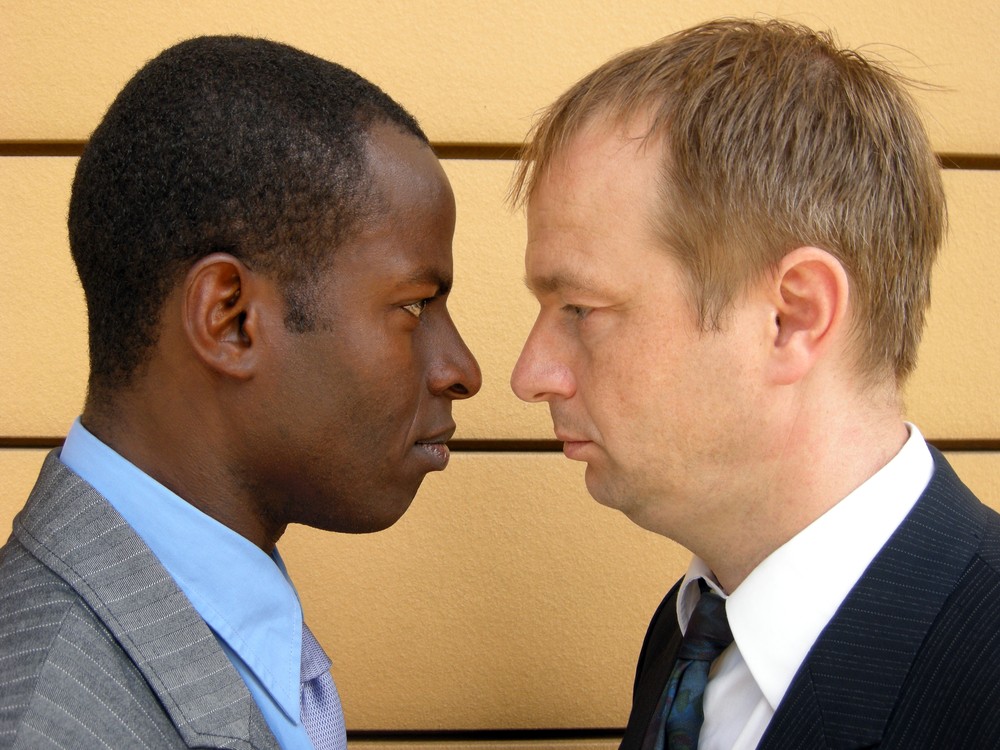 More and more lately, I'm realizing that the US is home to two societies, almost entirely separate and distinct. I grew up in the white society. People of color sometimes step into my world, briefly, but have never really been an integral part of it. I never really thought about why, and I never considered myself racist or prejudiced in any way. People are people, I figured, and I tend to like and get along with everybody. The other society is people of color. Almost all Black people, most Latinx and Asian people and other minority groups fit in this group of "others." These are the people who grow up alongside us whites, but not "with" us. These are the people who don't believe the world is a safe place or that America is a land of opportunity. These are the people born into oppression, who fear authority figures, who spend their lives learning to be subtle and not make waves. This society is painful and lonely. It's endlessly frustrating, knowing that the people in power, the people hiring, the people prosecuting, the people building housing, will never understand what it is to be part of a separate society. What it feels like to walk down the street and see people hold their purses tighter or grab their children's hands when they see you approaching. Have you seen the YouTube video of a white man stealing a bike compared to a black man stealing a bike? It illustrates our subconscious prejudgments effectively (whether or not it was a valid experiment). I, who consider myself unbiased, have to admit that I'm more likely to suspect a black young adult man in a hoody than a white young adult man in a polo shirt and khakis. And it has very little to do with their clothing choices. Here's the thing, though. The young white guy is far more likely to be a white supremacy zealot than the black man is to be anything but a regular guy trying to get through the day without pissing off any white people. Yes, he buys his clothes at discount stores and bikes to work, but his mama raised him to be honest, hardworking, loyal, and respectful. Doesn't matter. He's ten times more likely to end up in prison than the white guy. According to the NAACP, if you happen to be born black and male, there's a one in three chance that you'll spend some time in jail. For whites, it's more like one in forty. If you're a black woman, you're twice as likely to be raped as a white woman -- nearly half of all black women in America suffer sexual assault. Somehow the story has circulated that black men rape white women more than white men rape black women. Even though the exact opposite is true, white people choose to believe this lie. Black men arrested for drug possession serve prison time equivalent to white men guilty of violent crimes. People of color are ten times more likely to be arrested on drug charges, even though they represent less than one quarter of the drug users in America. We didn't abolish slavery 150 years ago. Slavery is alive and well. Instead of openly owning and abusing people of color, we just shun them, deny them access to public services, arrest them, sentence them to private prisons that practice unpaid labor. Just yesterday, a Seattle pregnant black mother of three called the police to report a burglary in progress. She was shot and killed by the two officers. She was holding a knife, they said. She had a history of mental illness, they reported. They feared for their lives, the story says. So they shot a tiny young mother in front of her children. No tasers. No tear gas. No effort to use their joint power, authority, and strength to disarm the frightened victim who had called them for help. Two Americas. I'm ashamed. Aren't you? http://www.naacp.org/criminal-justice-fact-sheet/ http://www.businessinsider.com/stupid-racist-meme-rape-black-men-2016-10 http://www.pewresearch.org/fact-tank/2016/06/27/key-takeaways-race-and-inequality/ 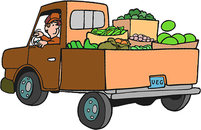 A couple of students have contacted me recently, asking for interviews for class projects. I'm so glad high schools are including awareness of charitable organizations in their curricula! Here are the most recent questions and answers. How long has this organization been around? We started August 1, 2015, as Benefit Brownies. I was a pastry chef and then an office manager and small business consultant. I became disabled in early 2015, and had the first of several surgeries in July that year. Sitting around recovering gave me time to think about what I wanted to do next with my life, now that my physical capacity was diminished, but I had a modest disability income so a salary wasn't mandatory. I've always loved to feed people, and am especially passionate about providing for people whom society has passed over. So I started Benefit Brownies to raise funds to fight hunger. I would use the funds to develop a network of volunteers to "rescue" edible leftover food and get it to people in need. I hoped to commission an app, similar to Uber, that would be open source. Then I could document the whole process and offer it to other communities to start their own programs with no costs. What motivates you to give your time to this cause? Once you've provided something as essential as food to someone who doesn't have enough, you can't ever turn your back on this problem. I'm glad that my humanity and sense of decency make me uncomfortable with our failures as a society, and that they push me to do something about it. I feel very fortunate to be able to choose where, when, and how to serve, and I'm very aware that I have a level of privilege that 90% of the world will never have access to. Most people are struggling so hard just to survive that they can't rise above their own needs to serve any other purpose, let alone choose a satisfying way to do that. And, selfishly, I have to admit that I need something productive to do with my days, a certain amount of structure, a certain accountability to others, that keeps me from becoming isolated and depressed. The more we care about other people, the richer our lives are. I have a very rich life! How does helping so many people make you feel? I used to think I would feel a lot of satisfaction in providing food to poor people, but it's not anything like that. It's humbling. It makes me feel apologetic, that I'm part of a community that allows people to go hungry and homeless, and that all I'm able to do about it is offer some food. In all the years I catered gourmet food to the wealthy, I never met anyone so grateful, kind, generous, and open. The people I meet on the street are amazing, and it's a privilege to be allowed into their lives, to learn their needs and fears and joys. They're all so vulnerable, but they don't let that rule them -- they find pleasure in simple things like a hot meal. They're eager to share with their neighbors, a quality so much richer because they have so little. You can't come home from them and take for granted your access to heat and a comfortable bed and running water. Where is the organization now compared to when it started? It didn't take us long, as Benefit Brownies, to learn that our little fundraising efforts weren't having a big impact. We also learned that the need isn't so much for money as it is for a volunteer force, for community energy, in getting already-available food to where it's needed. By January, 2016, we were focusing on Waste Not Food Taxi. When I suffered another health setback in August that year, we gave up the brownie baking completely, as I was no longer able to do the physical work. I started spending my time, instead, using mostly social media to invite people to volunteer. I phoned all the pantries, shelters, and free meal programs I could find and asked what kinds of food they needed most and when, and then went to area stores and restaurants to invite them to donate leftovers instead of throwing them away. In September, we enlisted 1 grocery store, a bakery, a bagel shop, and a coffee house. By the end of 2016, we were picking up about a ton of food a week, a lot of it from cafeterias in the Beaverton School District. We started partnering with other agencies to share resources, pick up from one another, and do our best to put edible leftovers to the most effective use. Now in the middle of March, 2017, we only pick up less than two tons of food each week when we can't line up big enough vehicles to move it all. We're launching a Saturday free food pantry this Saturday, because Saturdays seem under-served in Washington County. And we're actively seeking funds to add a vehicle to our operation, allowing us to deliver hot meals to people where they are. Whether it's a full-fledged food truck or a small pick up with pots of soup in the back will be determined by the amount we can raise. We hope to be offering mobile free meals by the end of this summer. What interesting things have happened while trying to start this organization? I had a small retirement account when I started this, and had to spend most of it to get off the ground. Just the licenses, permits, and other fees were about $1,000, and I had to rent commercial kitchen time to bake. I was surprised how little money I was able to raise. I expected to need to work hard to make any difference, but have since realized that hard work isn't what I have to offer, and it isn't what is most needed. As I continue to try to bend and adapt as I learn, I find that community organizing and "selling" this idea to volunteers and donating businesses are both my strengths and society's needs. Populating spreadsheets and sharing technology with other agencies is a much bigger part of this work than I expected. I'm glad, since my physical ability is so limited. But I never want to lose my direct connection with people living without shelter. They are my constant reminder of the simple basic needs of mankind and how easy it is to provide and care for one another. I believe that being out of touch with that simplicity is our culture's greatest loss. |
AuthorSusie Snortum is passionate about improving society's compassion for meeting basic human needs -- food, shelter, clean water, and dignity. Archives
September 2020
Categories |
We appreciate your support!
Hours
|
Telephone
|
Email
|
ADDRESS: 17850 NW Park View Blvd, Portland, OR 97229 United States
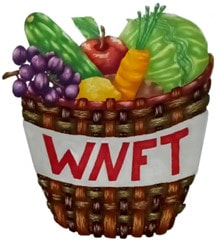
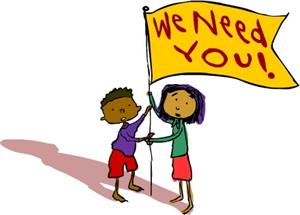
 RSS Feed
RSS Feed